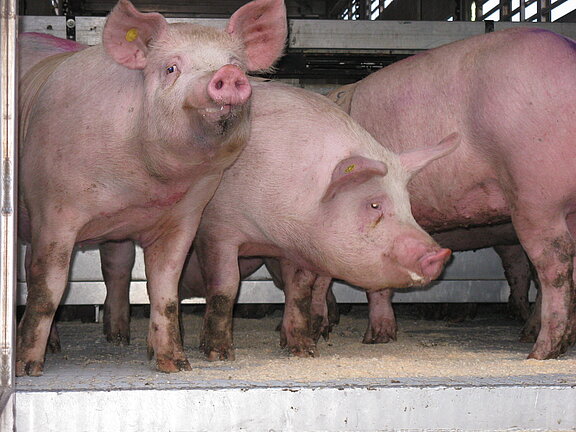A highly controversial issue is the question how animal-friendly the husbandry, transport or slaughter of livestock is in Germany. Although public opinion polls regularly show that the majority of respondents consider the responsible handling of farm animals to be important, the information available in this area is extremely limited. In particular, for agricultural policy decision-makers it might be difficult to assess in which areas of livestock farming there is the most urgent need for action, while there are extremely divergent and contrary opinions about animal welfare in livestock farming, transport and slaughter.
Referring to this, the joint research project "National Animal Welfare Monitoring" (NaTiMon), which was launched in spring 2019, aims to develop the basis for an indicator-based animal welfare monitoring in order to provide information on the state of animal welfare in Germany. In detail, the aim is to create the background for a regular reporting on animal welfare in terms of livestock husbandry, transport and slaughter in Germany in order to make changes measurable over time.
The Animal Welfare Monitoring should base on meaningful and practicable output (animal-based) and input (management- and resource-based) indicators for cattle, pigs, laying hens, broilers, turkeys as well as rainbow trout and carp from aquaculture.
At the “Institute of Animal Welfare and Husbandry” (ITT) in Celle animal welfare indicators respective transport and slaughter (cattle, pigs, laying hens, chickens for fattening and turkeys) are fist elaborated on scientific literature, secondly selected after consultation with experts from industry, science, animal welfare associations and representatives of various animal welfare labels on the basis of validity, reliability and practicability and thirdly tested in practice. At the end of the project, prototypes for animal welfare monitoring reports will be available.
The project is coordinated by the Thünen-Institut of Farm Economics. Further project partners are the Thünen-Institutes for Organic Farming and for Fisheries Ecology, the Federal Statistical Office (Bonn Animal Husbandry and Fisheries Branch), Kuratorium für Technik und Bauwesen in der Landwirtschaft e.V. (KTBL), Christian-Albrecht University of Kiel, University of Veterinary Medicine Hannover, Foundation and the Osnabrück University.





